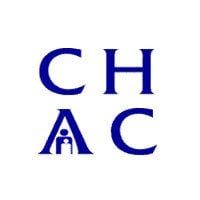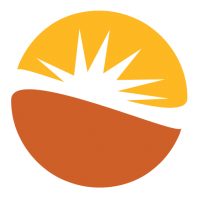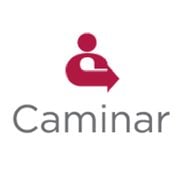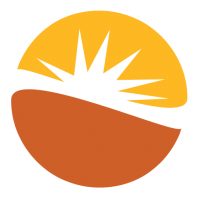Family and Children Services
Drug Rehab Center in Palo Alto, California
Family and Children Services is an accredited and state-licensed drug rehab center located in Palo Alto, California that provides Partial-Hospitalization, Outpatient, Aftercare Support, and Dual-Diagnosis treatment approaches with SAMHSA approval to equip individuals struggling with addiction and Dual Diagnosis issues with the necessary skills for long-term sobriety, accepting private health insurance plans to offer individualized care.
About This Palo Alto, CA Facility
Family & Children Services of Silicon Valley, situated in Palo Alto, California, provides comprehensive outpatient alcohol and drug rehab services for adults, as well as counseling for children, teens, and families. They offer specialized programs tailored to the unique needs of teenagers, justice-involved individuals, and the LGBTQ+ community.
• Intensive Outpatient Program (IOP): Clients receive 9-19 hours of weekly treatment, including individual and group therapy, addiction education, and relapse prevention.
• General Outpatient (OP) Services: Similar to the IOP, clients benefit from family counseling and trauma therapy to promote emotional wellness and prevent relapse.
• Extended Stay at Peer-Run Respite House: Alumni may be eligible for up to 14 days of additional support in a peer-run environment.
Family & Children Services is accredited by SAMHSA and holds a valid state license, ensuring high-quality care for their clients. They accept multiple insurance plans, such as Cigna, Humana, Blue Cross Blue Shield, Beacon, and United Healthcare, but it's essential to verify coverage with the insurer.
The facility offers treatment for a range of addictions, including drug addiction, alcoholism, and opioid addiction, as well as dual diagnosis and mental health issues. They provide a variety of treatment methods, including individual and group therapy, addiction education, relapse prevention, family counseling, and trauma therapy.
Genders
Ages
Modality
Additional
Accreditations
State License
SAMHSA
Conditions and Issues Treated
Opioid addiction involves addiction to legal or illegal opioids. It may happen very quickly with any opioid use. Sometimes within a matter of days. Opioid addiction is a known as a high-risk factor for future heroin addiction.
Opioid withdrawal can be extremely uncomfortable and lead the user to continue to use even if they want to quit. Stopping using an opioid requires careful medical observation. Sometimes the withdrawal can persist for many weeks, which can put the user at a high risk for relapse.
It is recommended to receive inpatient treatment and a medically supervised detox like those offered at Family and Children Services in Palo Alto, CA, CA, to manage the withdrawal process while learning lasting tools to maintain recovery. In some circumstances medications can be used to manage opioid addiction.
People with dual diagnosis have coexisting addiction and a mental disorder. 9.2 million US adults had a co-occurring disorder in 2018, so not just limited to California residents. Best treatment combines medication, psychotherapy (talk therapy), support group, and inpatient rehabilitation. Sometimes, complementary therapies – yoga, massage, and acupuncture – may also be used.
Levels of Care Offered
This center offers a variety of custom treatment tailored to individual recovery. Currently available are Aftercare Support, Dual-Diagnosis, Outpatient, Partial-Hospitalization, with additional therapies available as listed below.
Outpatient treatment can be considered the lowest intensity level of addiction treatment in Palo Alto, CA. It is ideal for early phase addiction or lower intensity addictions. Family and Children Services peer group support, 12-step programs, and individual counseling may still be involved.
Partial hospitalization programs offer another level of addiction treatment at Family and Children Services. It is another way to receive a significant amount of treatment while decreasing the time commitment and cost. It can be a good option for stepping down from inpatient treatment in anticipation of a fully independent life in Palo Alto, CA.
After treatment, addiction treatment can be frightening for newly sober people. Aftercare support provided by Family and Children Services is designed to give resources and help on a continued basis. It can involve finding housing in and around California, setting up 12-step meeting groups, continued medical monitoring, and counseling.
Family and Children Services‘s Therapies & Programs
Individual therapy aims to identify the core issues that would have led the patient to substance abuse and address the root cause effectively. Patients find the therapist as a person who they can trust. It helps them to open up and discuss personal and sensitive issues, which they may not be comfortable discussing in a group.
Couples therapy is an approach wherein the patients and their partners are engaged together as a part of the treatment process. When a person becomes a victim of substance abuse, it affects the patient and the people around him, particularly his partner. Their relationship can become strained due to lack of communication, financial issues, loss of trust, lack of intimacy, and physical abuse in more severe cases.
Couples therapy addresses these issues and tries to rebuild the trust between the partners. The partner’s involvement in the process will result in greater chances of treatment success and sustained recovery.
Family therapy is a set of therapeutic approaches that assumes that the entire family is a system. It utilizes the strengths and resources of the family to help the patient refrain from resorting to substance abuse. It helps to repair relationships and improve communication between family members.
Group therapy happens at Family and Children Services in a controlled group environment, as opposed to a one-on-one setting. It supports Palo Alto, CA patients’ recovery by offering a sense of comfort and letting them know that they are not alone. Through shared conversations, patients also learn to develop faith and understanding and gain insight on their addictions.
Unresolved trauma is often a key reason why many patients resorted to substance abuse. Trauma therapy refers to treatment wherein specialist therapists help the patients to resolve the trauma that led the patients to substance abuse. The trauma could be physical abuse, sexual abuse, war, natural disasters, divorce, accident, loss of a loved one, etc. Thinking of these traumatic events causes emotional disturbances like anxiety, depression and results in addiction. If trauma is the primary cause of substance abuse, then both issues must be addressed. Otherwise, there is a risk of relapse. Trauma therapy also improves the cognitive functions and provides long term benefits.
Dialectical Behavior Therapy (DBT) is an improved version of Cognitive Behavioral Therapy (CBT). DBT is a treatment of choice for people suffering from self-harming behaviors characterized by cutting and suicidal thoughts or inclinations.
This treatment is developed to help individuals recognize their thought patterns, behaviors, and feelings. It has demonstrated its effectiveness for people that are finding it difficult to control their emotions and urges. Conditions such as obsessive-compulsive disorder and borderline personality disorder also benefit from DBT as it imparts individuals stress-management techniques and enhanced self-esteem so they can sustain their sobriety by reducing the impact of triggers and out-of-control emotions.
Cognitive behavioral therapy (CBT) is a way of addressing concerns through talking. It can be used in individual counseling sessions. Talking through issues with professionals at Family and Children Services can identify sources of discomfort or unhealthy thoughts. It is a way of learning about yourself and your individual perceptions. CBT is a healthy way of addressing some behaviors which may be bringing unintended consequences in your life.
Payment Options Accepted
For specific insurance or payment methods please contact us.
Is your insurance accepted?
Ask an expert, call (888) 674-0062
Additional Details
Specifics, location, and helpful extra information.
Palo Alto, California 94306 Phone Number(650) 543-5400 Meta DetailsUpdated April 15, 2024
Staff Verified
Patient Reviews
There are no reviews yet. Be the first one to write one.
Palo Alto, California Addiction Information
More than 3 million of California's citizens are addicted to illegal drugs. Almost 800,000 people use hard drugs, almost 5 million use marijuana, and another 2.1 million abuse alcohol every year. Other substance abuse issues such as binge drinking and teen drug use are also common. Many illegal drugs such as cocaine, heroin, methamphetamine, and marijuana are smuggled into the state from Mexico.
According to recent statistics, around 9% of the population in Palo Alto, CA, struggles with addiction to drugs or alcohol. In 2014, 4,836 Palo Alto residents aged 12 or older had used an illicit drug, which is about 10.3% of the population in that age group. Several excellent drug rehab programs are available in Palo Alto. The most common treatments include inpatient and outpatient programs, 12-step programs, detoxification, and medication-assisted treatment.
Treatment in Nearby Cities
- Temecula, CA (391.4 mi.)
- Fountain Valley, CA (348.8 mi.)
- Colton, CA (356.8 mi.)
- Oakhurst, CA (137.3 mi.)
- Topanga, CA (304.5 mi.)
Centers near Family and Children Services
The facility name, logo and brand are the property and registered trademarks of Family and Children Services, and are being used for identification and informational purposes only. Use of these names, logos and brands shall not imply endorsement. RehabNow.org is not affiliated with or sponsored by Family and Children Services.







